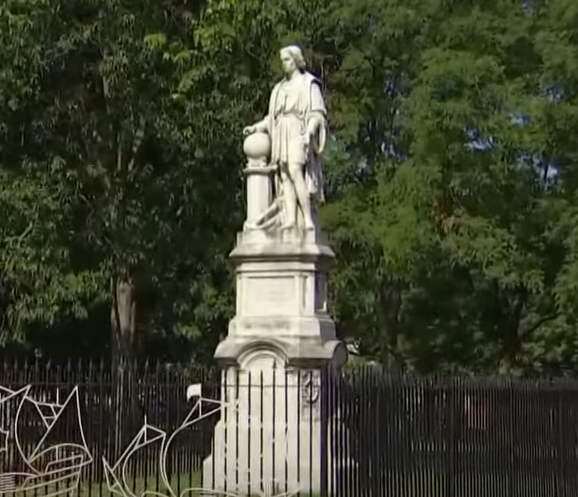Colleges hop onto the Indigenous Peoples Day bandwagon, blast Columbus Day

Colleges and universities in the United States have become synonymous with left-wing, if not radically progressive, indoctrination centers masquerading as hubs of higher learning and critical thinking. One of the annual events highlighting the close-minded nature of college campuses is Columbus Day, which the Left condemns as a reminder of white colonialism and patriarchy and has tried to replace the holiday with Indigenous Peoples Day.
Here are seven examples of higher education institutions which have adopted the Indigenous Peoples Day cause:
- University of Alaska, which has activities like a “film on the history and future of Indigenous Programs”, an artist panel discussion, indigenous painting, and other similar cultural activities.
- Oregon State University, which encourages people to attend an event where the local mayor signs a proclamation about Indigenous Peoples Day with tribal representatives in attendance.
- University of Colorado-Boulder, which listed the city of Boulder’s activities for the day. Some activities are a cooking class, language class, and social games.
- Idaho State University, whose events on the day focus is more on the business development with tribes. There are workshops about entrepreneurship and partnerships, which is an interesting contrast compared to the other universities on this list.
- Utah State University, and other public Utah universities or colleges, are participating in a “Indigenous People’s Day College Collaboration” in order to “celebrate and empower Indigenous People’s stories through film.”
- Dartmouth College, a part of the Ivy League, had a month of activities related to Native American history. Some examples are writing chalk messages on sidewalks, an indigenous fashion show, a film screening of “Imagining the Indian: The Fight Against Native American Mascoting,” as well as singing and drum events.
- Harvard University, another Ivy League school, had a three-hour event on its website that declared, “Join Natives at Harvard College and the Harvard University Native American Program in Harvard Yard at 1pm on Indigenous Peoples’ Day!” It was unclear what activities were included the event’s schedule.
But colleges aren’t the only entities which celebrate Indigenous Peoples Day. Here are seven examples of city governments which commemorate Indigenous Peoples Day:
- San Francisco, California
- Santa Ana, California
- Boulder, Colorado
- Cambridge, Massachusetts
- Minneapolis, Minnesota
- Lincoln, Nebraska
- Albuquerque, New Mexico
The Left’s argument against Columbus Day is that the holiday celebrates a white colonialist whose arrival to the Americas sparked the conquest of the natives through war or foreign diseases not yet experienced by the American natives. Christopher Columbus was an Italian explorer who was sponsored by the Spanish royal family to find a different path to the Indies, known today as India, but instead found the Americas. This “New World” became the Spanish empire’s source of revenue for decades and the native people were defeated one-by-one by Spanish conquistadors, such as Fernando Pizarro conquering the Incas in Peru or Hernán Cortés taking over modern-day Mexico.
Native Americans have called the holiday an affront to their people, who were devastated by the arrival of European settlers. They contend that Columbus approved of and conducted brutal warfare against their ancestors, that he was a genocidal dictator, and that he was not the first European to discover the Americas.
In historical context, Columbus was a crown-appointed governor in the Caribbean after his discovery of the new lands and he did approve of and conduct a devastating war against the native people. Yet some Columbus defenders point out that Europeans were notoriously ruthless in fighting wars, as evidenced by their conquests of Africa, and that the native people were just as brutal against in their wars against other tribes. Columbus was not the first European to discover the Americas, as some believe that Viking explorer Leif Erikson discovered Newfoundland in 1000 AD. Yet Columbus’s discovery in 1492 spurred significant and lasting European expansion, while Erikson’s discovery led to a short-lived Viking settlement (where few clues remain of where the settlement was located).
In the end, history is complicated, ugly, and far from simple.




